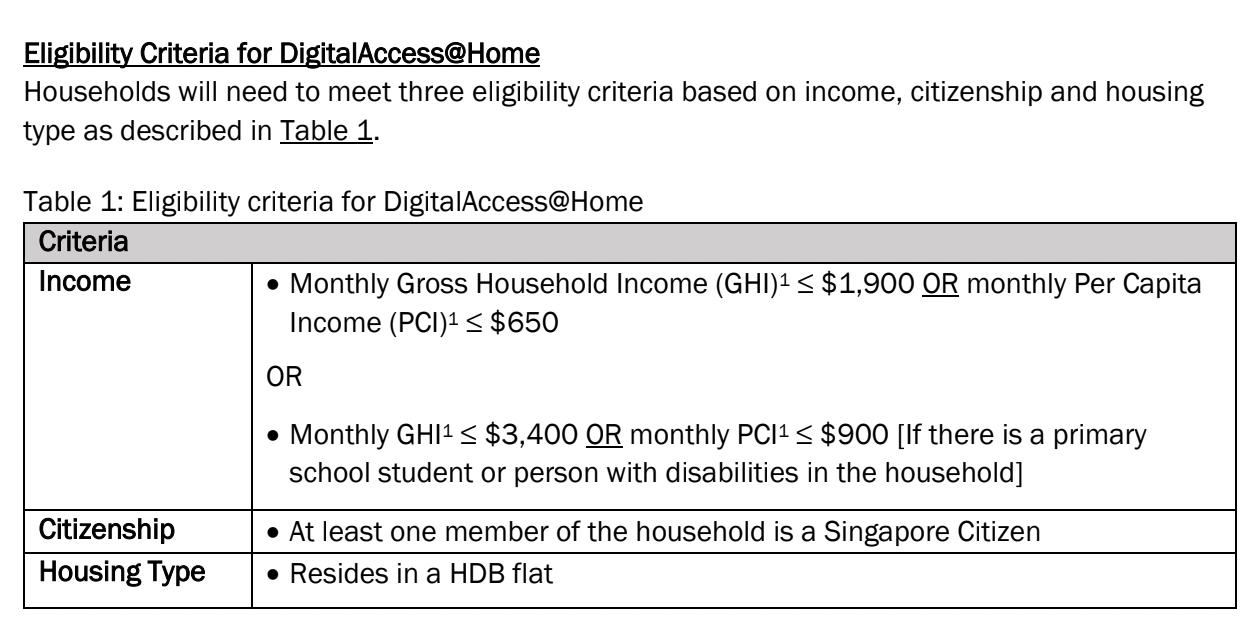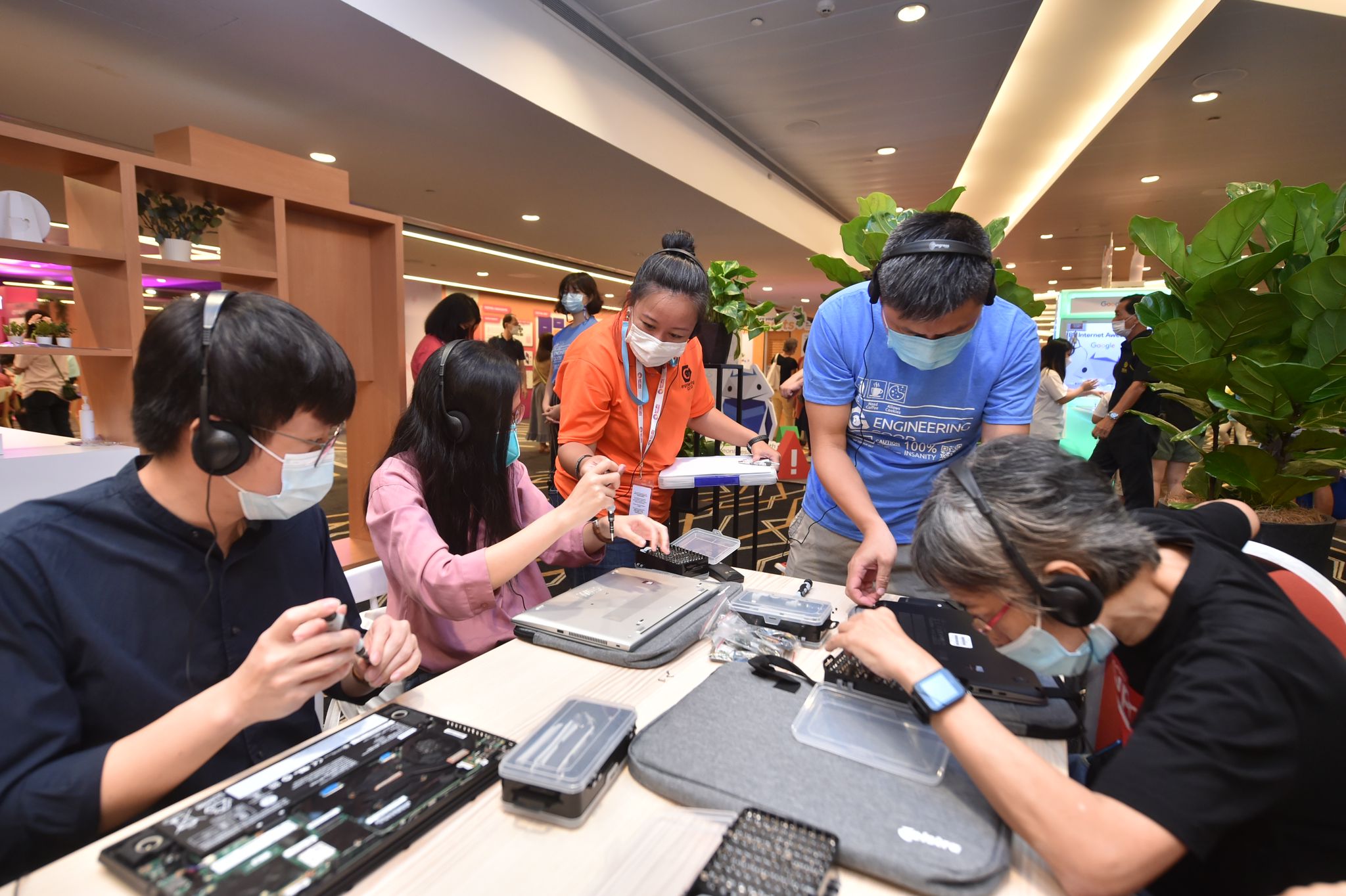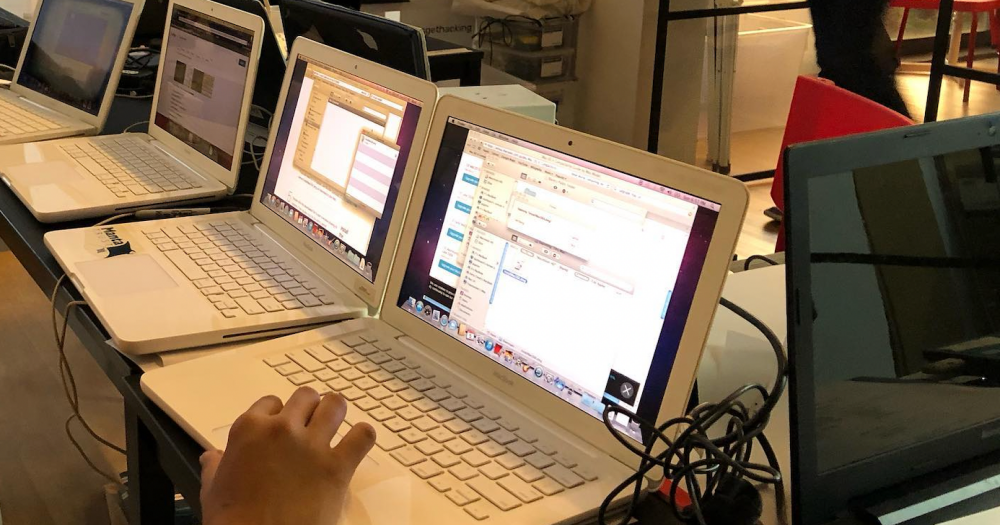Follow us on Telegram for the latest updates: https://t.me/mothershipsg
The new DigitalAccess@Home scheme, introduced by the Infocomm Media Development Authority (IMDA), will come into effect from Apr. 3, 2023.
It will provide subsidised broadband and digital devices to low-income Singaporean households to strengthen digital inclusion, said the Minister for Communications and Information (MCI) Josephine Teo in her Committee of Supply speech on Feb. 28.
MCI shared that the new scheme arose from IMDA’s regular review of how low-income households can be better supported to receive affordable digital access conveniently. It has also taken ideas and suggestions from a Forward Singapore (ForwardSG) conversation hosted by Teo on Feb. 3.
60,000 households to benefit from DigitalAccess@Home
About S$80 million has been set aside over the next four years to fund this new scheme which will be able to support 60,000 households.
Eligible households can choose from device choices such as laptops or tablets and have different broadband connectivity options.
Households can now choose the offerings which best suit their needs, for example, choosing broadband-only, device-only, or a combination of broadband and device.
In addition, there is an option to choose from different broadband speeds as well as laptop and tablet models.
This will replace the existing NEU PC Plus and Home Access schemes which have helped over 46,000 households stay connected since 2022, Teo shared.
Eligible households
Eligible households should have at least one Singapore Citizen and are residing in an HDB flat.
Households which have a monthly Gross Household Income (GHI) of S$1,900 or less, or have a monthly Per Capita Income (PCI) of S$650 or less are eligible.
Alternatively, if they have a primary school student or person with disabilities in the household, they will be eligible if their monthly GHI is S$3,400 or less or their monthly PCI is S$900 or less.

GHI refers to all employment income, self-employed income, rental income, overtime pay, allowances, cash awards, commissions and bonuses of all members of the household.
PCI refers to the average monthly gross household income divided by the total number of household members.
Co-payment amounts
The families that meet the above criteria will receive subsidies ranged between 25 per cent and 75 per cent, and only need to pay the co-payment.
Under the new DigitalAccess@Home scheme, every month, those living in HDB rental flats under the Public Rental Scheme will pay S$5 for the broadband subscription, those in one to three-room flats will pay S$10, and those in four-room or larger flats will pay S$15.
They can double their bandwidth from 500 Mbps to 1 Gbps for an additional S$5 every month.
Teo note that to achieve digital inclusion, broadband access must be accompanied by device access. The accessibility to devices is often a bigger barrier to low-income people as the costs are higher and harder to spread out, she added.
Under this scheme, beneficiaries will pay a subsidised price for devices, to reduce out-of-pocket costs for devices.

Those who are existing recipients of selected government assistance schemes, such as the Housing & Development Board’s Public Rental Scheme and the Ministry of Social and Family Development’s (MSF) ComCare Assistance will pay S$5 per month for 500Mbps broadband subscription.
Households with students on the Ministry of Education’s Financial Assistance Schemes (MOE FAS) may also enjoy the highest level of subsidy, depending on their income.
Beneficiaries who chose a broadband-only or device-only option at the start have the option of adding a device or broadband to the assistance package that they have chosen at any point in time.
Faster application process
"IMDA is also exploring collaborations with other government agencies to eliminate the need for a separate application for DigitalAccess@Home", MCI said in their press release.
They have been working with MSF to automatically refer ComCare beneficiaries to the scheme by having them opt for it as part of the ComCare application.
Other applicants may apply via the online system or through hardcopy submissions.
They can also approach any of the 37 SG Digital community hubs and self-help groups, such as the Chinese Development Assistance Council, Mendaki, Singapore Indian Development Association and Eurasian Association, for assistance with their applications.
The application process will be simplified and no longer needs supporting documents such as copies of NRIC and income documents to be submitted.
1,000 refurbished laptops provided
Complementing the DigitalAccess@Home scheme, partners from the people and private sectors have also come forward to bolster the Government’s support for low-income families.
Engineering Good and SGBono will provide up to 1,000 refurbished laptops per year to support DigitalAccess@Home beneficiaries with larger families who may require additional laptops.
 Engineering Good is a non-profit organisation that supports digital inclusivity, by collecting, refurbishing and distributing used laptops to families and individuals that need them. (Credit: Engineering Good)
Engineering Good is a non-profit organisation that supports digital inclusivity, by collecting, refurbishing and distributing used laptops to families and individuals that need them. (Credit: Engineering Good)
Top image via Engineering Good/FB.
If you like what you read, follow us on Facebook, Instagram, Twitter and Telegram to get the latest updates.
